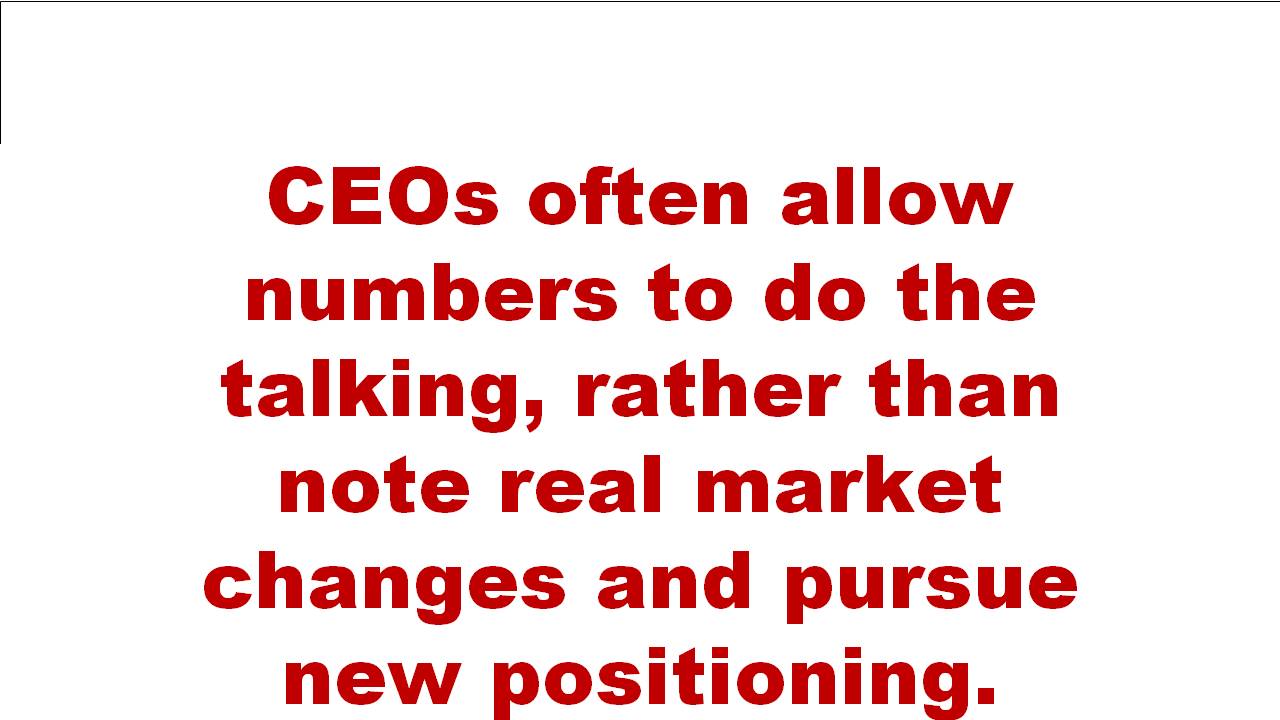by Peter A. Arthur-Smith
“A venture without a compelling vision often ends up going nowhere in particular.”

EO translates to Chief Executive Officer, which by definition means the executive in charge of ensuring everything is executed or implemented. That’s fine, to a point, but doesn’t reflect the most imperative aspect of this role. In fact, it would hardly be surprising to many of us if the majority of today’s CEOs do exactly that – ensure everything listed in any plans are executed. For that reason, it’s so often the strong implementers who are appointed to this position. Individuals that can cut-through their organization’s “noise” and make things happen.
Increasingly, however, that’s not enough. In fact, in reality it’s never been enough. In today’s world, even more so than in past eras, where markets and social norms are forever changing, it’s just not possible to be purely an executor. When you consider household names like Toys-R-Us, The Body Shop, or Lord & Taylor (oldest ever department store) have gone for good. Or Macy’s or Dollar General stores are drifting away, because their CEOs are falling asleep at the wheel. Or their leaders don’t see the writing on the wall, or are unable to envision a fresh future for their venture. It makes you wonder what the founders of these listed firms, who were likely Visionists, would do in the circumstances?
Too often as chief executors, when their firm starts to wane, the CEOs playbook is to focus on the numbers. As the saying goes, and like music to their accountant’s ears, the numbers do the talking. They immediately resort to efficiency plays, cut-out loss-leaders and downsize where necessary. That makes instant sense until you realize that they’re likely jumping onto an efficiency downward spiral… possibly even a death spiral. Cutting costs satisfies shareholders and financial markets over the short term, but then what?
Ventures without a fresh vision and purpose will keep applying those efficiencies in order to stay alive. Executive teams quickly become addicted to it – while the smarter ones bail out. Unfortunately such a strategy eventually catches up with them and eventual demise occurs; ergo The Body Shop closes for good.
If some ventures are lucky, they bring in visionary CEOs or Visionists to bring fresh perspectives, revitalize their “charge,” and take their firm in a fresh direction. That happened a number of years ago, when non- computer executive, Lou Gerstner, took IBM away from producing laptops and started it off within the fresh market of cloud computing. IBM is now one of the leaders in that field. Allan Mullaly was another example at Ford. He was a former Boeing CEO who revitalized Ford with his legendary people-leadership and visionary qualities. He replaced many of Ford’s by-the-numbers executives with people-oriented strategists and positioned it into highly profitable, customer-desired vehicles. There have been countless other turnaround stories over the years, where ventures were saved by visionary CEOs – or Visionists – rather than conventional CEOs.
From these examples, as well as other household names like Starbucks, Staples, Netflix, Google, Amazon; they were led by Visionists versus conventional CEOs. Such ventures epitomize principal players constantly looking toward their next market situation and then re-positioning their companies to ride the next wave. The most effective ones also have strong teams of domain strategists around them that pursue complementary domain strategies that fully support the overall vision. It then remains for Visionists to keep orchestrating their domain strategists until their intentions are fulfilled.
Consequently, it’s about time for owners and shareholders to take a fresh perspective when considering those they wish to lead their ventures. They should be looking for genuine Visionists rather than CEOs; individuals who regularly look ahead rather than just execute the immediate gameplan. That way their invested ventures are likely be around for years to come, rather than become household names under their original founders and then just fade away with the next generation.
It was particularly interesting in year 2000, during our millennia celebration, to note that of the 100 well known companies that held sway in 1900 less than a handful were left…General Electric was one of them. Even GE has taken a fall over the past decade and is only a shadow of its former self. When Jack Welch retired, it would appear that his successors just rode the existing wave until it crashed on a new shoreline. Maybe with our numbers obsession, we rely on “the numbers to do the talking” rather than re-assessing the overall marketplace and considering how well our venture is fundamentally positioned for future growth.
